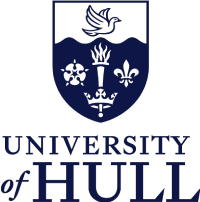About the Project
A British Heart Foundation funded PhD studentship position is available to study the signal transduction pathways that regulate the function of blood platelets.
Platelets play a key role in the cessation of bleeding in response to injury, but also contribute to vascular inflammation and arterial thrombosis. At sites of vascular damage platelets adhere to the exposed extracellular matrix to form a primary haemostastic plug. A critical element of this response is the release of platelet cargo from α-granules, dense granules and lysosomes. The importance of granule secretion in haemostasis is evidenced by the bleeding diathesis in patients with Hermansky-Pudlak syndrome and gray platelet syndrome. α-synuclein is a small, highly conserved presynaptic protein that plays a key role in vesicle transport in neuronal cells, but its function in platelets remains elusive.
Using platelets from healthy volunteers and genetically modified mice, this project will examine the role of α-synuclein in platelet function using a wide variety of methodologies, such as PCR, flow cytometry, fluorescence and intravital microscopy, and proteomics. The successful candidate will also receive formal Home Office Licensee Training PIL. This project is part of an ongoing collaboration between Dr Aburima (HYMS), Prof Naseem (University of Leeds) and Prof Buchman (Cardiff University), and therefore the student will have access to state-of-the-art laboratories to support their project.
As part of Student Development Programme, the student will have weekly progress meetings with their supervisor; however, additional formal Thesis Advisory Panel meetings will be scheduled at 6-month intervals. In addition, the student will be enrolled on the Postgraduate Training Scheme (PGTS) to attend varied training courses provided by the University of Hull to enhance their generic and professional skills. The student will have the opportunity to present results of the study at National and/or International conferences as appropriate.
For informal inquiries, please contact Dr Ahmed Aburima by email on [Email Address Removed] or Prof Khalid Naseem on [Email Address Removed].
Location and Research Culture
Hull York Medical School’s unique partnership brings together the expertise of both the Universities of Hull and York and offers a thriving environment in which to conduct world-leading research. Strong partnerships with NHS Trusts and community health organisations offer a wide clinical base within which to study those conditions that most affect our communities – improving their health while developing research work that can be applied nationally and globally.
The School’s academic and clinical researchers at have a strong reputation for their work, 85% of which is classed as ‘world-leading’ or ‘internationally excellent’ (REF 2014). Their research is advancing improvements in healthcare – treatment, diagnosis and care – improving the health of people locally and impacting national and international health agendas. https://www.hyms.ac.uk
The student will join a dynamic research team and thriving community of graduate students from the UK and overseas in the Centre for Atherothrombosis and Metabolic Disease at the University of Hull. Many students also study in our laboratories at local hospitals across the city. This gives our students unparalleled access to the facilities, academic and clinical expertise to thrive in their research.
Named Academic
Dr Ahmed Aburima (PhD supervisor), Independent Research Fellow in Cardiovascular Biology; Email: [Email Address Removed]
Prof Khalid Naseem (Co-Supervisor), Professor in Cardiovascular Biology; Email: [Email Address Removed].
Start Date 1st October 2019
Qualification Required
In order to qualify you will require an undergraduate degree 2.1, or a Master’s degree, in a relevant subject (Biochemistry, Molecular and Cellular Biology, Pharmacology, Pharmacy or related discipline). English Language requirements apply where applicable. IELTS 6.5 with a minimum of 6.0 in all.
How to Apply
Applications MUST BE submitted to HYMS via the online application method choosing 2019 October, full-time: https://www.york.ac.uk/study/postgraduate/courses/apply?course=DRPMEDSMED3&level=postgraduate
Application Deadline 12th July 2019.
In order for the Panel to get a sense of your academic background, commitment and interest, you are required to complete the application form in full and provide a research proposal/outline of academic interest. Research proposals and personal statements may be used in selecting applicants for interview. If you have any queries please email [Email Address Removed].
Please note that this is a student scholarship. If you will be employed by HYMS (e.g. on a fixed or short term contract) for the duration of your study, you will not be eligible to receive the student scholarship as a member of HYMS staff.
Funding Notes
This 3 year studentship is fully funded by the British Heart Foundation and will commence in October 2019. The student will receive a minimum tax-free stipend of £24,319 per annum and home UK/EU fees for 3 years. This studentship is open to UK /EU citizens. Non-EU applicants may still apply for the position but in case of acceptance of the position they will be required to pay the additional fee for international students.

 Continue with Facebook
Continue with Facebook

